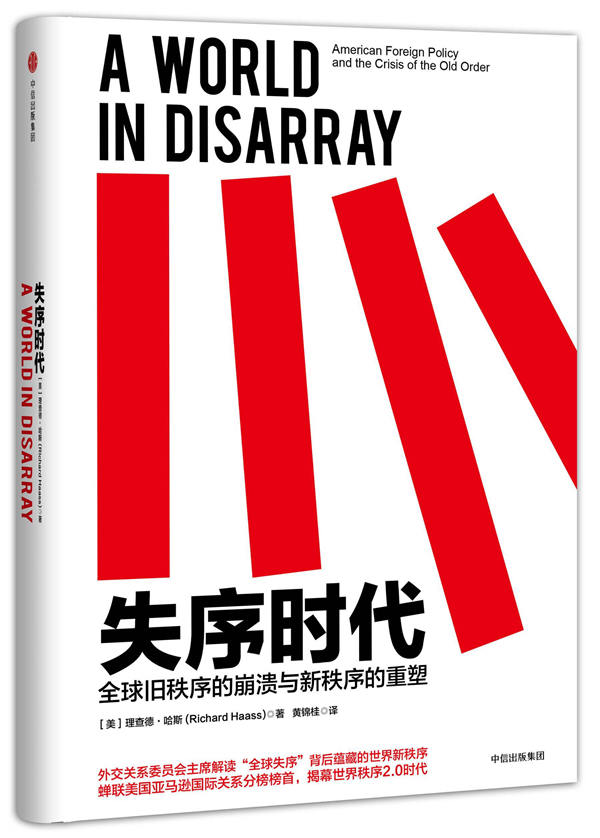Veteran diplomat surveys global problems, suggests solutions
- By Madeline Hamiter
 0 Comment(s)
0 Comment(s) Print
Print E-mail China.org.cn, June 27, 2017
E-mail China.org.cn, June 27, 2017
 |
| A World in Disarray [Photo provided to China.org.cn] |
Dr. Richard Haass, an American diplomat who is currently the president of the U.S.-based Council on Foreign Rlations, has written a book called "A World in Disarray," which details many foreign policy issues facing the world today and proposes some solutions.
Haass attended a lecture series hosted by the Beijing-based Pangoal Institution in the Chinese capital on June 22. He spoke about his new book, and discussed some of the other pressing international issues, like the importance of building and maintaining the Sino-American relationship.
He is optimistic about the future of this relationship, because he believes that the two nations will be able to find enough common ground to work together for mutual benefit.
Although his book was written before the election of President Donald Trump, during the lecture series, Haass spoke briefly about how the new President's actions and policies will affect many of the problems outlined within his book, such as the decision to withdraw from the Trans-Pacific Partnership, and to take military action in Syria against President Bashar Al-Assad's regime.
Haass thought the latter was a correct one, because he believes that maintaining a firm stance against the use of chemical weapons against civilians is necessary to help preserve the new world order. However, he disagreed with the withdrawal from the TPP. He is hoping the other participants will continue to press ahead with the agreement without the United States, which might reconsider someday.
He also described in detail some of the major problems that the world faces today, including the gap between global challenges and global institutions (such as the lack of consensus on how to police global cyberspace), the rising prominence of global instability (as shown by events like Brexit), terrorism, nuclear proliferation and climate change.
Proposed solutions include strengthening global institutions (such as the United Nations, IMF, WTO, and the World Bank) to that they can more effectively and efficiently deal with international problems. Another solution is to build a strong international intellectual community that can work together to solve many of the major problems like defeating ISIS, stabilizing the Middle East, and preventing North Korea from developing nuclear weapons. Haass believes international cooperation is an integral part of building a new world order.
The veteran diplomat also attempted to introduce a new solution, which is the concept of Sovereign Obligation. Sovereignty is often associated with rights, primarily a country being allowed to function as it chooses. Haass argued that, in an increasingly interconnected world, due to the forces of globalization, what goes on within the borders of one country can affect others; therefore every country has a responsibility to ensure the safety of other states by policing what goes on within its borders.
Further, he argued that, if a country fails to do so, it is the responsibility of other countries to step in and assist or sanction as necessary.
Haass said he wrote the book in part to call attention to global problems he believed had been steadily developing since World War II, but have worsened in recent months. He believes the world is currently at a crossroads, and whatever decisions are made today will have a huge impact on the next few years.
A Chinese edition of the book has been published by the Citic Press Group recently.






Go to Forum >>0 Comment(s)